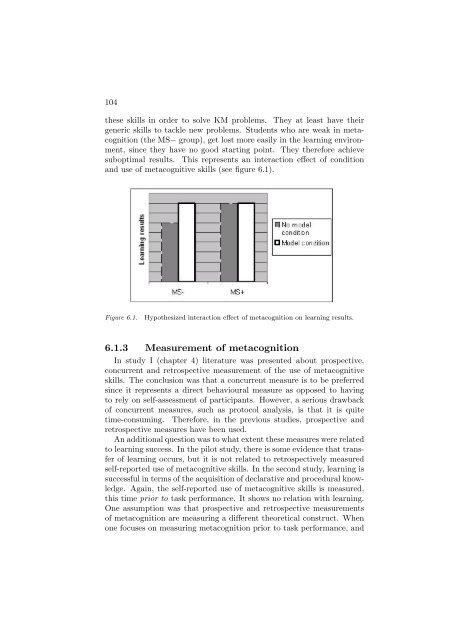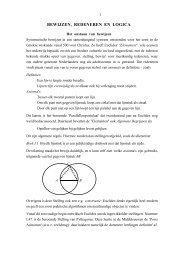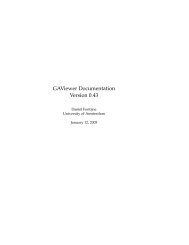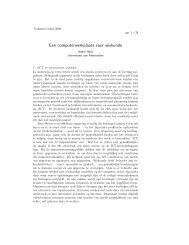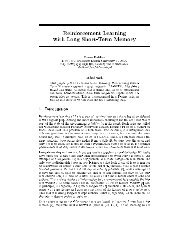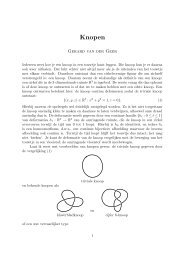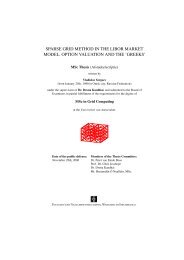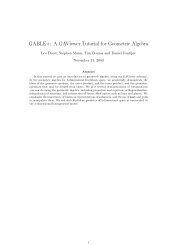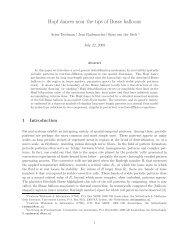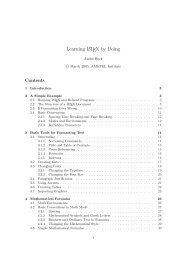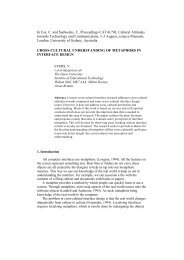The role of metacognitive skills in learning to solve problems
The role of metacognitive skills in learning to solve problems
The role of metacognitive skills in learning to solve problems
You also want an ePaper? Increase the reach of your titles
YUMPU automatically turns print PDFs into web optimized ePapers that Google loves.
104<br />
these <strong>skills</strong> <strong>in</strong> order <strong>to</strong> <strong>solve</strong> KM <strong>problems</strong>. <strong>The</strong>y at least have their<br />
generic <strong>skills</strong> <strong>to</strong> tackle new <strong>problems</strong>. Students who are weak <strong>in</strong> metacognition<br />
(the MS− group), get lost more easily <strong>in</strong> the learn<strong>in</strong>g environment,<br />
s<strong>in</strong>ce they have no good start<strong>in</strong>g po<strong>in</strong>t. <strong>The</strong>y therefore achieve<br />
suboptimal results. This represents an <strong>in</strong>teraction effect <strong>of</strong> condition<br />
and use <strong>of</strong> <strong>metacognitive</strong> <strong>skills</strong> (see figure 6.1).<br />
Figure 6.1.<br />
Hypothesized <strong>in</strong>teraction effect <strong>of</strong> metacognition on learn<strong>in</strong>g results.<br />
6.1.3 Measurement <strong>of</strong> metacognition<br />
In study I (chapter 4) literature was presented about prospective,<br />
concurrent and retrospective measurement <strong>of</strong> the use <strong>of</strong> <strong>metacognitive</strong><br />
<strong>skills</strong>. <strong>The</strong> conclusion was that a concurrent measure is <strong>to</strong> be preferred<br />
s<strong>in</strong>ce it represents a direct behavioural measure as opposed <strong>to</strong> hav<strong>in</strong>g<br />
<strong>to</strong> rely on self-assessment <strong>of</strong> participants. However, a serious drawback<br />
<strong>of</strong> concurrent measures, such as pro<strong>to</strong>col analysis, is that it is quite<br />
time-consum<strong>in</strong>g. <strong>The</strong>refore, <strong>in</strong> the previous studies, prospective and<br />
retrospective measures have been used.<br />
An additional question was <strong>to</strong> what extent these measures were related<br />
<strong>to</strong> learn<strong>in</strong>g success. In the pilot study, there is some evidence that transfer<br />
<strong>of</strong> learn<strong>in</strong>g occurs, but it is not related <strong>to</strong> retrospectively measured<br />
self-reported use <strong>of</strong> <strong>metacognitive</strong> <strong>skills</strong>. In the second study, learn<strong>in</strong>g is<br />
successful <strong>in</strong> terms <strong>of</strong> the acquisition <strong>of</strong> declarative and procedural knowledge.<br />
Aga<strong>in</strong>, the self-reported use <strong>of</strong> <strong>metacognitive</strong> <strong>skills</strong> is measured,<br />
this time prior <strong>to</strong> task performance. It shows no relation with learn<strong>in</strong>g.<br />
One assumption was that prospective and retrospective measurements<br />
<strong>of</strong> metacognition are measur<strong>in</strong>g a different theoretical construct. When<br />
one focuses on measur<strong>in</strong>g metacognition prior <strong>to</strong> task performance, and


